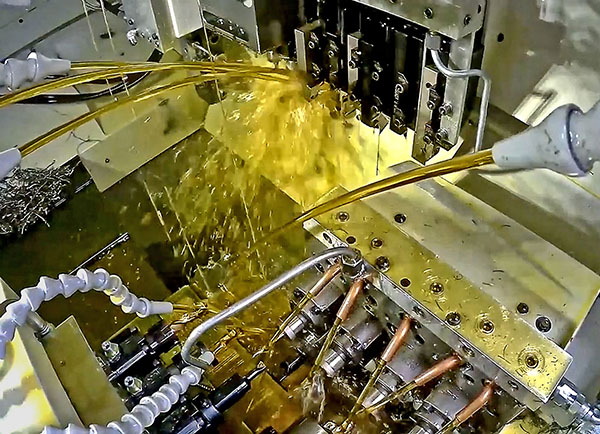Like most turned parts subcontractors, Sub CNC Precision uses its 14 twin-spindle, multi-axis bar autos, in this case all from Citizen Machinery UK, to turn-mill parts in one hit from a wide variety of metals that extend from mild and stainless steels, through copper and aluminium alloys, to exotics such as Monel, Inconel and titanium. Likewise, the company produces components from many types of plastic including nylon, PEEK and Delrin.

The list of industries served is also long, encompassing aerospace and defence, telecommunications, motorsport, automotive, marine, agricultural and medical, the latter accounting for 20% of turnover in an average year.
So when Rolls-Royce was trying to find a suitable firm to produce a particularly difficult pair of plastic components for the Ventilator Challenge UK, it is unsurprising that its email list included ISO 9001:2008-accredited Sub CNC, whose name had been passed to the government’s consortium by Citizen, which had been identified as a critical supplier.
One of the reasons for Sub CNC winning this plastic turn-milling work, as well as subsequent urgent medical contracts, is the option to use on four of its 12 Citizen sliding-head lathes the manufacturer’s patented LFV chip-breaking software. The machining of plastic materials, as well as many metals, results in stringy swarf wrapping itself around the tool and component, forcing the operator to stop the machine frequently for remedial action, compromising productivity. LFV avoids this situation by oscillating the tool by a few tens of microns to break the swarf into small, manageable pieces, the length of which can actually be programmed.
The two components for Rolls-Royce required the use of sliders capable of turning 32 mm diameter bar. At Sub CNC, the only machine of this capacity equipped with LFV is an L32-VIII, which was deployed for producing the most difficult part with drilled and milled features.
For further information www.citizenmachinery.co.uk















